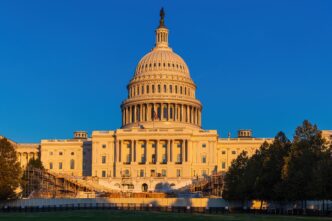Executive Summary
- HJR 205 proposes exempting Florida residents aged 65 and older from most property taxes on primary homes.
- The bill excludes public school taxes from the exemption and bans cuts to law enforcement budgets through 2027.
- Analysts project a potential $6.7 billion revenue shortfall for local governments if the measure passes.
- The proposal requires 60% approval from both legislative chambers and the electorate to become law.
A Florida legislator has introduced a proposal that would exempt senior citizens from paying the majority of property taxes on their primary residences, a move aimed at alleviating financial pressure on retirees amid rising living costs. House Joint Resolution 205 (HJR 205), sponsored by State Representative Juan Carlos Porras (R-West Kendall), seeks to exempt individuals aged 65 and older from property taxes on homesteaded residences, excluding taxes levied for public schools.
The proposed legislation includes provisions designed to protect public safety funding despite the potential reduction in tax revenue. According to the text of the bill, municipalities would be prohibited from reducing law enforcement budgets during the 2025-2026 and 2026-2027 fiscal years to offset the loss of funds. Representative Porras told CBS News Miami that the state must trust elected leaders to prioritize essential needs, specifically identifying public education, law enforcement, and firefighting services as critical areas that must be preserved over other expenditures.
Current state law allows for homestead exemptions that reduce taxable value by up to $50,000, with additional options for low-income seniors. However, proponents of the new bill argue these measures are insufficient given the sharp rise in the cost of living. Data from a Florida Atlantic University poll indicates that nearly half of Floridians have considered relocating due to economic pressures. Furthermore, homeowners are facing escalating property insurance rates and assessments on aging condominium structures.
Despite the intended relief for seniors, fiscal analysts have raised concerns regarding the impact on local government solvency. A bill analysis by the Florida House of Representatives projects that removing property taxes for seniors could result in a $6.7 billion shortfall in non-school revenue streams. The Florida Policy Institute estimates the total cost to counties at $7.8 billion and municipalities at $3 billion. Local officials, including Bartlow City Commissioner Trish Pfeiffer, expressed concern to the Pensacola News Journal that such a shortfall would force local governments to shift the tax burden to renters and small businesses through increased fees.
HJR 205 is one of several tax-reduction measures currently advancing in the Florida House. According to WUSF NPR, similar proposals include HJR 207, which suggests an additional 25% reduction in assessed taxable value, and HJR 203, which aims to phase out most property taxes over a decade. To become law, HJR 205 requires approval by 60% of both the Florida House and Senate, followed by ratification by 60% of the electorate.
Fiscal Implications and Legislative Outlook
The introduction of HJR 205 highlights a significant legislative debate regarding the balance between targeted tax relief and municipal fiscal sustainability. While the proposal addresses the acute affordability crisis affecting Florida’s fixed-income population, the projected multi-billion dollar revenue reduction poses a substantial challenge for local jurisdictions responsible for infrastructure and services. The explicit prohibition on law enforcement budget cuts suggests legislative awareness of these risks, yet the potential shift of the tax burden to commercial entities and non-senior residents remains a contentious point. The high threshold required for passage—supermajorities in the legislature followed by a voter referendum—indicates that this measure will face rigorous scrutiny regarding its long-term economic viability before it can be enshrined in the state constitution.







